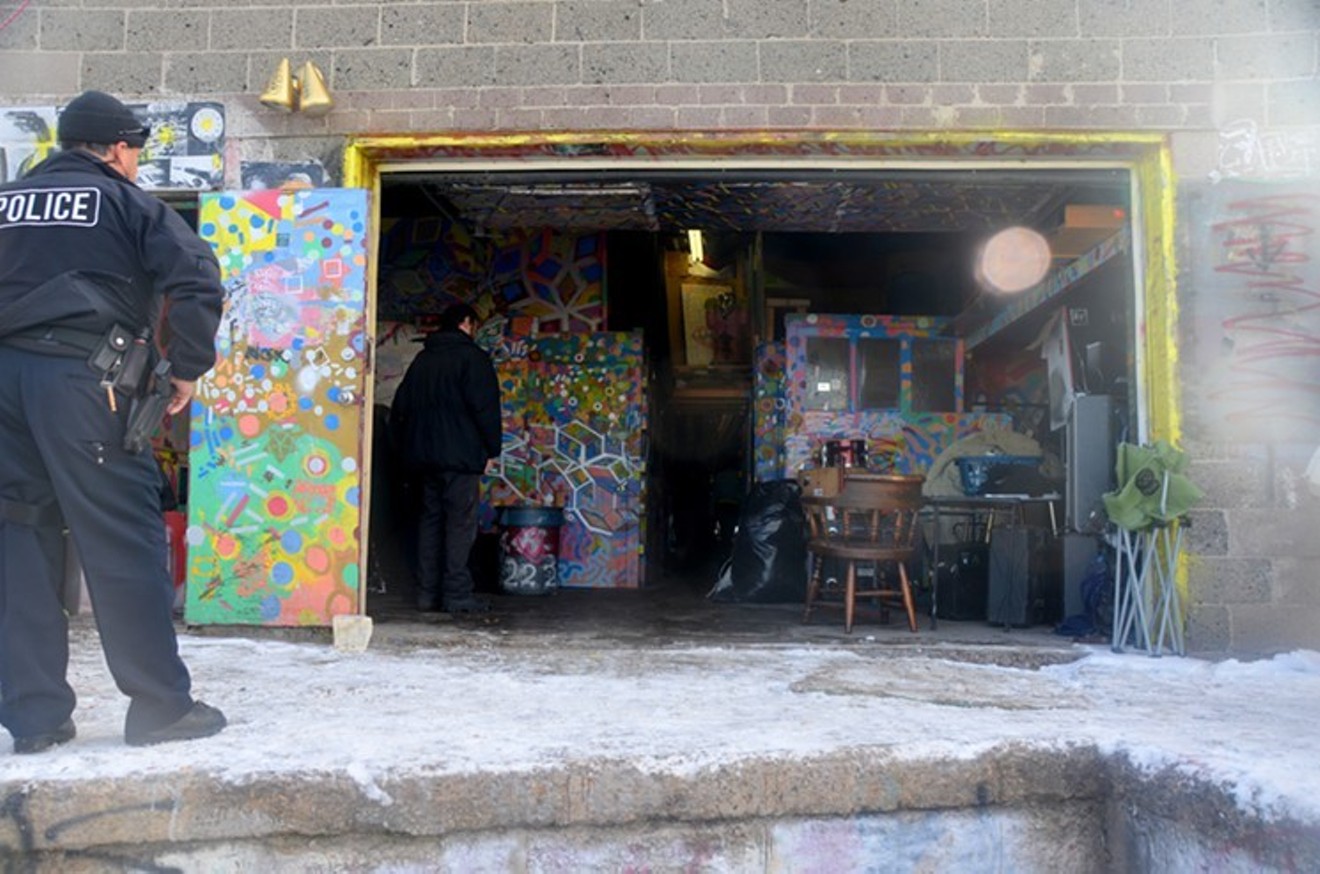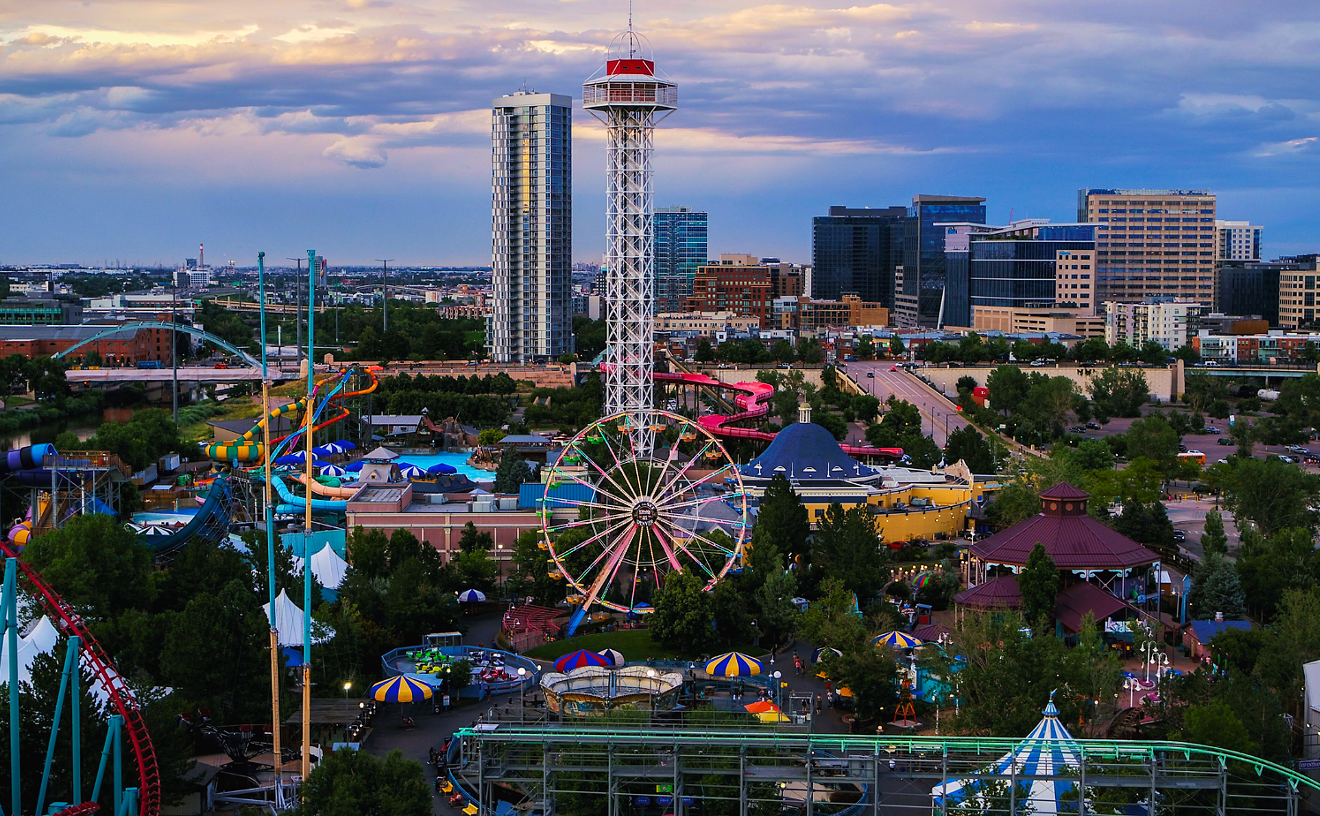Although the program was certainly propelled by concerns raised by the fire that killed 36 in the Oakland warehouse (two people have been charged with manslaughter in connection with the incident), Brad Buchanan, CPD executive director, says that even before December, his office and the fire department were seeing an "increase in calls for unpermitted spaces" and "affordability issues on multiple levels." The Ghost Ship tragedy highlighted their concerns, he adds.
After talking with artists and property owners alike, both in private meetings and at a public gathering in January, and working with the Mayor's Office, Denver Arts & Venues and other city agencies, the planning and fire departments are proposing a conditional building occupancy program for unpermitted spaces that they say will ensure life safety, limit displacement, and allow extended deadlines and collaborative solutions to achieve code compliance. The program is designed to incentivize the owners and tenants of unpermitted spaces to come forward and work with the city to make their buildings safe, while minimizing displacement.

Ginger White, deputy director of Arts & Venues, at a January meeting between the city and artists.
Kyle Harris
“As property values rise, displacement is a very real concern, for the arts community and for other vulnerable groups in Denver,” Buchanan said in announcing the proposal officially. “This program will make it safer, easier and less expensive for people to live and work in the neighborhoods they helped build.”
“Our first priority is public safety,” added Denver Fire Chief Eric Tade. “Everyone deserves to live and work in buildings that are safe.”
Although the program was designed with arts spaces in mind, it can also be used by tenants and owners of other structures with unpermitted work. But concerns about the city's creative community were certainly foremost. "They are our storytellers, our truth tellers," Buchanan says. "Their role in bridging the gap is unique."
And so Denver came up with a unique solution. Rather than propose the plan as a policy, city officials decided to go through Denver City Council to get it on the books as an ordinance. And according to Buchanan, if the plan is approved by council — a council committee will review it on June 28 — Denver will become the first city in the country with a law explicitly granting legal occupancy of unpermitted spaces while a building is being brought up to code voluntarily.
“This is truly progressive thinking from a municipality," says Vince Kadlubek, co-founder and CEO of Meow Wolf, the Santa Fe arts collective that gave $10,000 to Rhinoceropolis and Glob, two venues closed after city inspections last December, and also handled a $20,000 grant program for Denver DIY spaces funded by Arts & Venues. "We hope this supports alternative creative communities as they work toward safety and compliance.”
Buchanan says his department has already reached out to architecture groups regarding discounted fees and pro bono work for spaces in the program; in addition to the $20,000 in Denver funds given to DIY groups, Meow Wolf has granted another $34,000 to Denver groups.
Here's how the safe occupancy program would work, according to the city:
For two years from the bill’s effective date, the owner or tenant of an existing unpermitted space may come forward to apply for the program.Once the work is completed to the city's satisfaction, the conditional certificate of occupancy would be replaced by an official certificate.
City code officials would inspect the space to assess its safety, but would not require the owner to correct violations right away unless there is a serious life-safety concern.
The owner or tenant will work with city code officials to create a plan and set extended timelines for making sure their space is up to code. This would involve the applicant hiring an architect or other licensed professional.
During this process, an owner or tenant may apply for a conditional certificate of occupancy to continue to use the building. City officials will grant this allowance after verifying that no serious life safety hazards exist and a plan to bring the building up to code is in place.
While work is ongoing, inspections will be scheduled to assess progress.
"We do this process every day for existing spaces," Buchanan points out, since Denver is full of old buildings that find it challenging to meet today's codes. "We work with them."
It's trickier when the space has gone ahead and done the work without permission, of course. "Applicants must voluntarily disclose unpermitted work," a city fact sheet notes. "Work discovered in a city inspection is not eligible."
That fact sheet is below; watch for more information on the proposal at the city's safe occupancy site.












